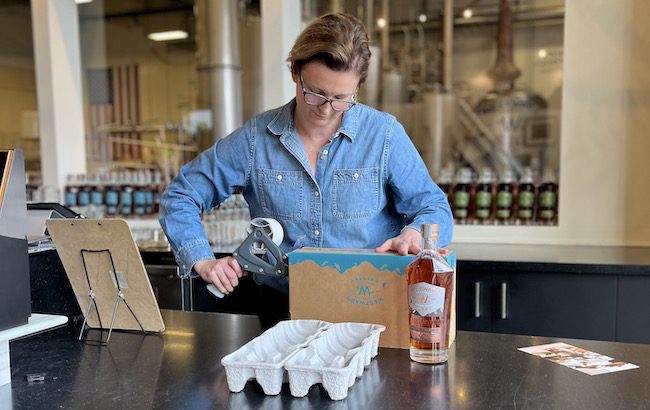Debate arises over craft distillers’ distribution access
The American Craft Spirits Association (ACSA) and Wine & Spirits Wholesalers of America (WSWA) have released duelling statements this past week after an article claimed craft distillers are being hampered by the three-tier system.

An article published in Food & Wine has caused a stir within the spirits industry, as trade groups the ACSA and WSWA have since traded public statements debating its contents, which claim that craft distillers are struggling because their distribution options are intentionally limited.
In ‘U.S. Craft Distillers Are in Crisis’, published 31 July, author Jake Emen writes that “a skewed and perhaps even predatory distribution system” contributes to “the inequities in how consumers can shop for spirits versus wine, mainly in the lack of legal direct-to-consumer (DTC) spirits shipping”.
Emen spoke with former ACSA presidents Thomas Mooney and Becky Harris, who advocated for broader interstate shipping laws. Harris says that she has counted 45 distilleries that have closed since the beginning of 2023, and believes that DTC shipping can help smaller distillers grow beyond their home states. Presently, eight states and Washington DC allow the shipment of spirits between states, while 48 states and DC allow the same for wine. In March, The Spirits Business covered similar issues surrounding spirits shipping.
On 1 August, the WSWA released a statement in response to Emen’s article, pointing to broader factors like inflation and decreased consumer spending to explain not just the recent struggles of craft producers but the spirits industry at large. The article, they said, “ignores the realities of today’s challenging spirits marketplace in favour of an overly simplistic and factually inaccurate argument that the distribution tier is to blame for recent craft spirits decline”.
The ACSA then released a statement on 5 August applauding Emen’s article, calling for market access modernisation, with DTC shipping a key tool. “As WSWA contends, it is true that market conditions today are challenging, and we welcome an open dialogue on these matters,” the statement said. “But respectfully, with inflation, rising costs of living and market uncertainty plaguing the entire economic landscape, we cannot afford to overlook the need for new tools for craft distillers – particularly those that allow them to sell in the way today’s consumer demands.”
That same day, the WSWA released a second statement, warning of the potential dangers of loosening DTC laws citing studies that show that the age of the recipient often goes unchecked. “Blaming wholesalers for the industry’s challenges is shortsighted. The focus should instead be on how the entire supply chain, including wholesalers, can adapt to changing market conditions and support each other in navigating economic pressures,” it read.
Craft distillers feel the three-tier system isn’t designed to serve small producers, as large distribution companies hold too much capital and influence. The WSWA meanwhile insists that what is in place has worked for decades, larger market factors exist, and that DTC is not a cure-all for struggling producers.
“For our community of craft distillers, this isn’t a push to unlock brand growth. Rather, this is a push to survive in a climate that is rife with hurdles,” ACSA CEO Margie Lehrman told The Spirits Business. “We need to ensure there are market access opportunities and at present, they don’t exist. DTC shipping — along with other market access improvements — is one of the critical lifelines we need to offer craft distillers in this challenging economic climate. ”
In its statement, the ACSA cites a study that found that 87% of craft spirits drinkers want to legally purchase via DTC, and 82% of craft spirits drinkers support laws changing in order to expand DTC. As for more conventional distribution, they say that 72% of craft distillers have been seeking distribution in one or more states, with 51% saying they’ve been turned down, and 22% having given up looking.
The WSWA calls for an end to any finger pointing, and Lehrman is hopeful that productive discussions can be had.
“Small distillers, wholesalers, and retailers all are looking for ways to save money, streamline operations, and give customers seamless ways to get their favourite products,” she said. “With a clear focus on improving the customer experience, we know we can work together to achieve just that.”
Related news
Sid Vicious bar to open in Washington state
